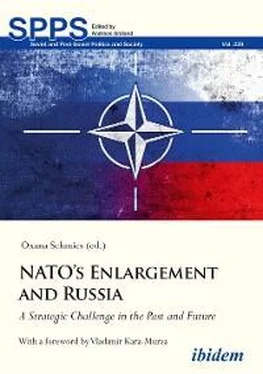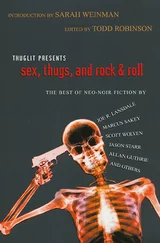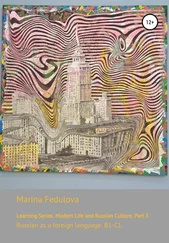ibidem-Press, Stuttgart
Contents
Foreword A Europe “Whole and Free” Will Not Be Possible Without Russia
Note by the Series Editor
Introduction
Looking for Historical Unlocking Issues of Strategic Stability
Nuclear Deterrence A Guarantee or Threat to Strategic Stability?
50 Years Ago: Kennedy, Brandt, Nixon A Model for 21st Century Statecraft?
A “Great Prize,” But Not the Main Prize British Internal Deliberations on Not-Losing Russia, 1993–1995
The Clinton Administration and Reshaping Europe
Russia and NATO Security Guarantees as a Strategic Challenge for Central and Eastern Europe
Central European Security and Russia
The Ukraine Conflict Lessons for NATO, Kyiv and Their Future Relations
Damage Control The Breach of the Budapest Memorandum and the Nuclear Non-Proliferation Regime
Lost and Real Chances in Western-Ukrainian-Russian Relations An Interview
Russia as a Security Challenge of Tomorrow Some Clues
Strategic Decentering Moscow’s Ideological Rhetoric and its Strategic Unconscious, 2012–2020
Foundations of Current and Future Security Relations Between Russia and NATO Member States Narratives, Capabilities, Perceptions and Misperceptions
Cooperation vs. Confrontation German-Russian Security Relations Between Geopolitical Poles
On the Misperception of Russia’s Foreign and Security Policies
Russian Military Policy and Moscow’s Approach Towards the West
Concluding Remarks
Foreword
A Europe “Whole and Free” Will Not Be Possible Without Russia
Vladimir V. Kara-Murza
On December 20, 1991, as NATO diplomats gathered at the alliance’s headquarters in Brussels to meet with counterparts from the former Warsaw Pact countries, the Russian envoy, Nikolai Afanasyevsky, made two surprising announcements. With the first, he asked for the words “Soviet Union” to be struck from the communiqué, reflecting a reality that would take Soviet President Mikhail Gorbachev five more days to recognize. With the second, he read out a letter from Russian President Boris Yeltsin to NATO Secretary-General Manfred Wörner. Vowing to work toward fostering “a climate of mutual understanding and trust, strengthening stability and cooperation on the European continent,” the Russian leader—the first to be democratically elected in the country’s history—affirmed that he was “raising a question of Russia’s membership in NATO … as a long-term political aim.” 1
“Formed four decades ago to deter a Soviet invasion of Western Europe, [NATO] now finds itself having to deter a stampede from the newly liberated Eastern Europe and the Soviet Union, which want to join the Western alliance,” noted The New York Times ’ dispatch from the meeting, summarizing the challenge before the Transatlantic community. 2
Three decades on, the results of NATO’s response to that challenge have been mixed—as testified to by the questions posed in this volume, edited by Oxana Schmies, that brings together some of the best strategic minds from both coasts of the Atlantic and both sides of the former Iron Curtain. On the one hand, NATO enlargement has been a resounding success, doubling the number of member states and expanding the zone of freedom and security to an extent unimaginable by participants of that December meeting. On the other hand, it has proven to be a dismal failure, having led to a new dynamic of confrontation between the Western alliance and Russia—Europe’s largest country, without which the celebrated goal of a Europe “whole and free” is unachievable by definition.
This question—of Russia’s place in Europe and in the Euro-Atlantic community writ large—is central to any discussion about NATO (and, although this falls outside the scope of this volume, European Union) enlargement, with regard to both analyzing the past and preparing for the future. Indeed, these two goals are closely connected: studying past mistakes is a prerequisite for avoiding their repeat.
It appears that one of the West’s gravest mistakes in the early 1990s was its unpreparedness to deal with the challenge of integrating a democratic Russia as one of its own. So far-fetched seemed the very prospect of a democratic Russia in the late 1980s, so confident seemed the predictions by Western analysts that the Soviet regime was secure and not going anywhere, that when reality altered these predictions in 1991 Western leaders were unsure how to respond. According to contemporary press accounts from the Brussels meeting in December 1991, after President Yeltsin’s statement was read out “NATO officials, from Secretary-General Wörner on down, seemed too taken aback by the Russian letter to give any coherent response.” 3
Yet that response—if well prepared and correctly pitched—could have proven crucial at a critical time. As many policymakers from Central and Eastern Europe have attested, the prospect of Euro-Atlantic integration played a key role in these countries’ successful transition to democracy and a free market in the 1990s. Indeed, in his February 1990 address to a joint session of the U.S. Congress Václav Havel, the new president of Czechoslovakia, chose to frame that whole transition in terms of his country “returning to Europe.” 4The promise of a full-fledged integration—not only with the reassertion of former Eastern Bloc countries as “fully European” but also with tangible benefits to their citizens in the form of open markets, free trade, and visa-free travel—served as a powerful incentive to political elites for persisting in and successfully completing the post-communist transformation.
No such incentive was offered to the reformers in Yeltsin’s government. While Russia was admitted into the Council of Europe and the G8—the former giving Russian citizens important protections under the European Convention on Human Rights and access to the European Court, the latter the symbolic status of a respected world power—the benefits of “first-track” European integration remained out of reach. Accession to the European Union—which, under the terms of the Maastricht Treaty, was supposed to be open to “any European state”—was not offered to Yeltsin’s Russia even as a distant possibility; while it was only in 1995 that Russian Foreign Minister Andrei Kozyrev (as he recalls in his recently published memoir, The Firebird ) finally received assurances from the Clinton Administration that the U.S. would be open to future Russian membership in NATO. 5By then, the democratic window of opportunity in Russia itself was rapidly closing for reasons of domestic politics and a botched post-communist transition that would warrant a separate discussion of its own.
It is well known that Russia’s foreign policy is closely linked to domestic political developments. Democratic aspirations at home translate into a more friendly and progressive international posturing; testimony to that are President Yeltsin’s efforts in support of the independence of the Baltic States in the waning says of the Soviet Union—efforts backed by Russian public opinion at the time. The reverse correlation was persuasively demonstrated after Vladimir Putin came to power in 2000. Having begun his rule by silencing independent media voices, taming parliament and the judiciary, fixing elections, and going after opponents, he proceeded with a multitude of foreign entanglements, including actual wars in Georgia and eastern Ukraine and, with Crimea, the first state-to-state territorial annexation on European soil since the end of the Second World War. There is no reason to expect a regime that tramples on the rights of its own people and violates its own laws to respect international norms or the interests of other nations.
Читать дальше












